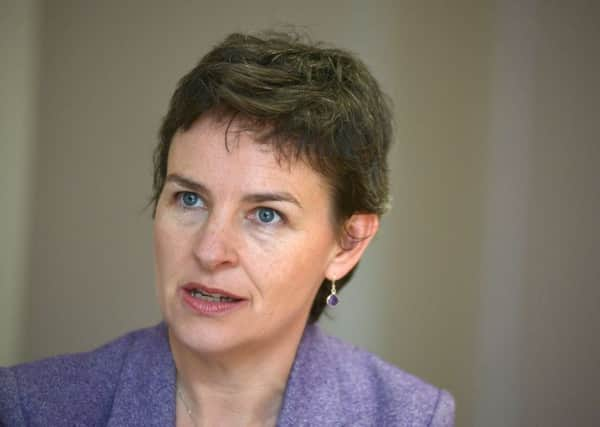Microbead ban to '˜turn the tide' on plastic polluting our oceans


Manufacturers of cosmetics and personal care products like face scrubs, shower gels and even some toothpastes will no longer be able to add the tiny bits of plastic to their products in one of the worlds toughest bans on microbeads.
The cross-party Environmental Audit Committee, chaired by Labour MP for Wakefield Mary Creagh, first called for a ban in August 2016 after it found as much as 86 tonnes of microplastics are released into the environment every year in the UK from facial exfoliates alone. A single shower can result in 100,000 plastic particles entering the ocean.
Advertisement
Hide AdAdvertisement
Hide AdMs Creagh told The Yorkshire Post: “Cosmetics are an avoidable part of microbead pollution and we know these plastics are choking up our seas, polluting waters, harming wildlife and entering the human food chain. It’s felt like it has been a long time coming, but today is a landmark day for turning back the plastic tide.”
Ms Creagh, whose committee last week called for a 25p “latte levy” on disposable coffee cups, likened the scope of the microbead ban to the plastic bag ban, which has taken 9bn bags out of circulation, and said all consumers could take action to reduce plastic consumption and place pressure on food retailers and supermarkets to minimise food packaging and waste.
Environment Minister Thérèse Coffey said she was determined to tackle the “that devastates our precious marine life”.
“Microbeads are entirely unnecessary when there are so many natural alternatives available, and I am delighted that from today cosmetics manufacturers will no longer be able to add this harmful plastic to their rinse-off products,” she said. “Now we have reached this important milestone, we will explore how we can build on our world-leading ban and tackle other forms of plastic waste.”
Advertisement
Hide AdAdvertisement
Hide AdThe Marine Conservation Society’s (MSC) senior pollution officer, Dr Sue Kinsey, said: “This is the strongest and most comprehensive ban to be enacted in the world and will help to stem the flow of micro plastics into our oceans. We believe that this signals a real commitment on the part of this Government to clean up our seas and beaches and hope this is a first step on this road before we see further actions to combat plastic waste.”
Campaigners at Fauna & Flora International said the ban signalled “the dawn of a new era in the fight for cleaner, healthier oceans.”
Research by the University of Hull last year found that even “pristine” Antarctic waters were polluted with the tiny fragments, with five times more microplastics than would have been expected in waters previously considered relatively pollution-free. A ban on the sale of products containing microbeads will follow later in the year.
- Environmentalists have backed a new campaign calling on both the Scottish and UK governments to ban use of plastic drinking straws, which take 500 years to decompose.
Advertisement
Hide AdAdvertisement
Hide AdThe MSC has backed the SNP MSP Kates Forbes, who warned that as many as three billion could be thrown away every year across Scotland.
Ms Forbes said: “Any ban has got to be UK-wide because the sea does not respect country borders and plastic straws washed out to sea in the south of England could easily end up on the Highland coastline.”